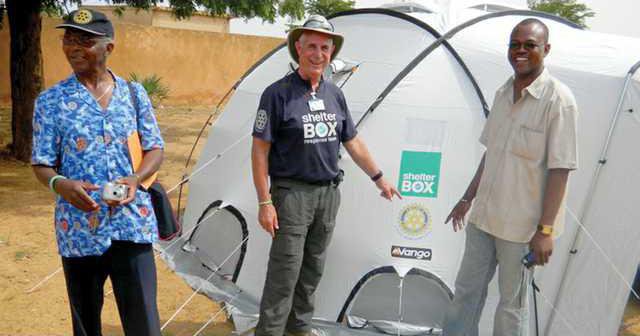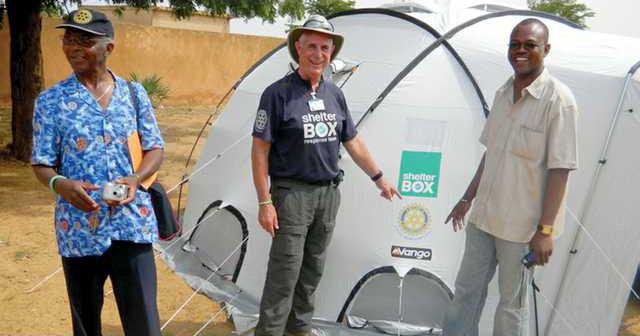ShelterBox international aid
Wherever a natural disaster occurs, Mike Freeman may soon arrive with a ShelterBox.
Freeman, a Gainesville resident and longtime Rotary Club member, said he wanted to find another way to volunteer once he retired.
"Volunteers are trained on a 48-hour notice to go anywhere in the world to receive tents and then take them to disaster areas to ensure that they get where they're supposed to go," said Freeman, a response team member. When Freeman saw brochures three years ago about the box that helps international disaster situations, he decided to jump on board.
Volunteers carry large plastic boxes, which weigh more than 100 pounds, to areas that need help. Each box contains a tent for up to 10 people, thermal blankets, a small water purification system, hammer, axe, saw, shovel, wood-burning stove, pans and eating utensils. Optional packs include mosquito nets and children's supplies such as crayons, markers and paper.
"No deployment is ever the same," Freeman said. "The children are wonderful wherever you go."
The ShelterBox organization, created in the United Kingdom in 2000, responds during earthquakes, volcanos, floods, hurricanes, tornados and tsunamis.
Volunteers have helped in 100 disasters in 70 countries, and they have set up more than 96,000 tents this year.
The value of a box is $1,000, which includes transportation for the box and response team member, handling, insurance and standard administrative costs. Each box has a unique number, so a donor can track the box to its recipient country on the ShelterBoxUSA.org website. ShelterBox response teams work with local organizations, international aid agencies and worldwide Rotary clubs to distribute boxes on the ground.
"What we're trained to do is be people who can think on our feet and think on the spot. When a plan doesn't work, we go to Plan B," he said. "We're dropped in the middle of the country, often in developing nations that don't have much to begin with and now have a disaster on top of that. There are language barriers, different political systems, different currency and trying to get boxes through customs."
After a nine-day training period in England, Freeman's first deployment was to Zambia in response to flooding. His next trip was to the Democratic Republic of Congo to help those displaced by war. He also visited Niger for flooding and Guatemala three times for volcano eruptions. At the beginning of September, he returned to Niger to help with flooding again.
"The deployments constantly amaze me," he said. "In Niger, what really impressed me was the resiliency of people in the midst of a disaster when they had nothing to begin with. That's inspiring."
A team of two to four people go to a country for two weeks at a time. Freeman is the only response team member in the Hall County area but knows a father and son from Alpharetta and several members in Florida and Tennessee.
"You never know who you're going to be with," he said. "In all of my deployments, with the exception of one, I didn't know the people before I got there, but we know we've been through the same kind of training. You land on the ground knowing the other team members have your back."

